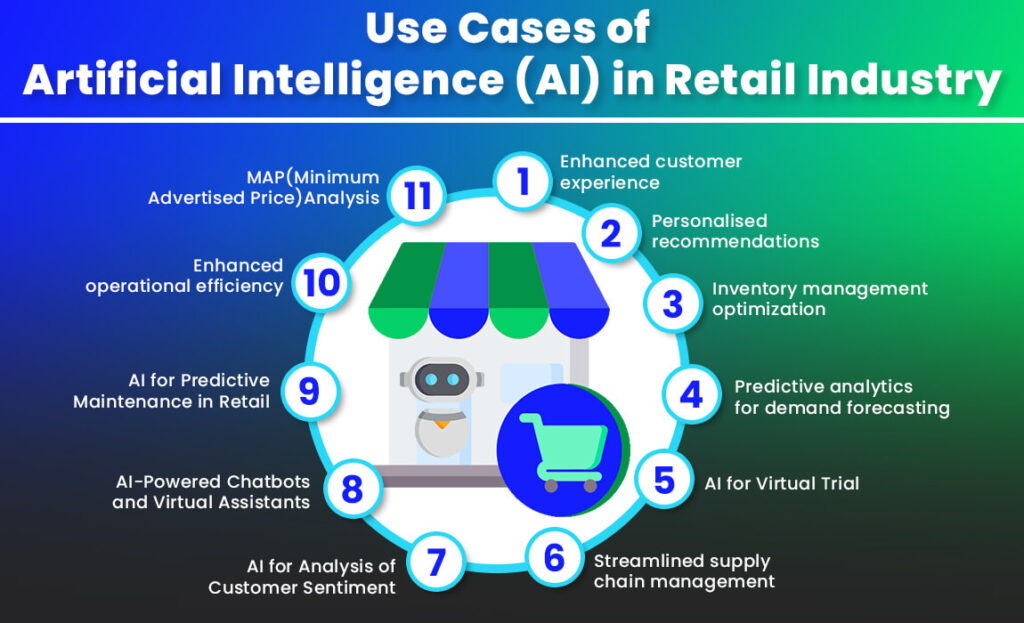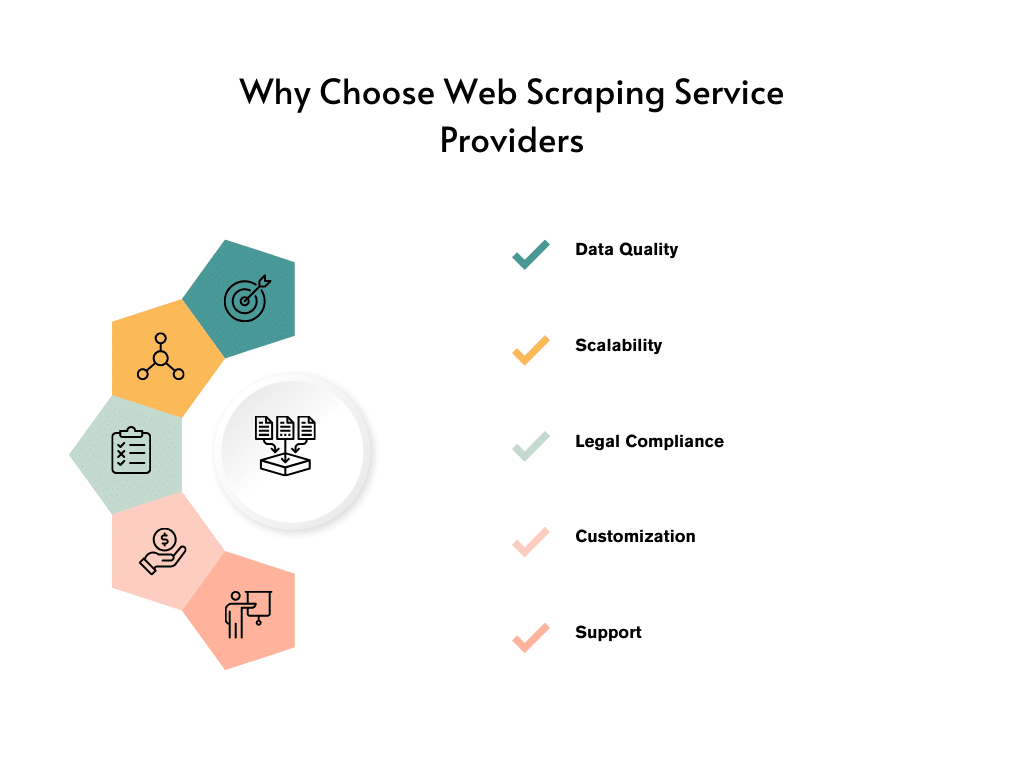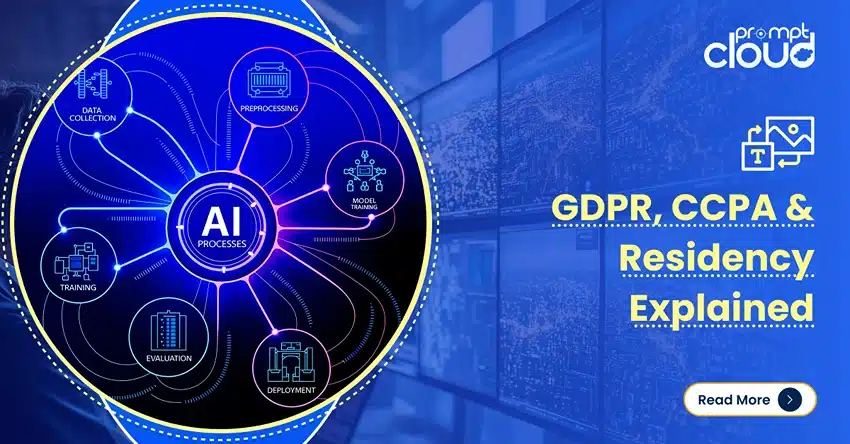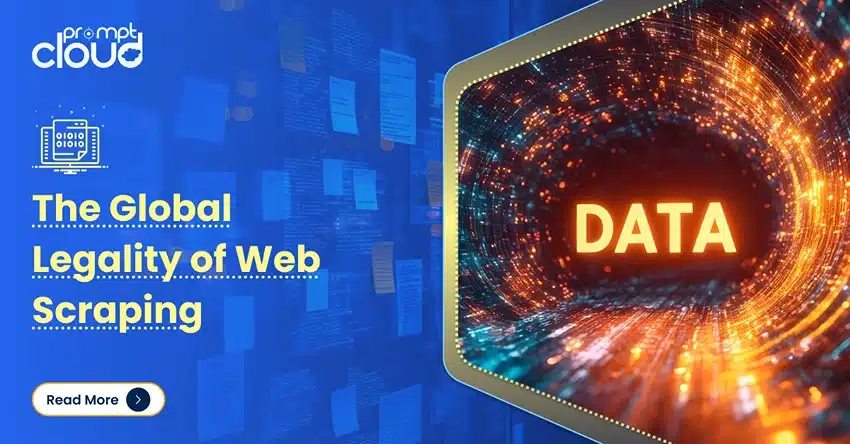
The retail industry is at the forefront of technological transformation, with Generative AI for retail unlocking new possibilities in customer experience, inventory management, and personalized marketing. However, the true potential of generative AI lies in the quality of data it consumes. This is where web scraping becomes a game-changer, providing structured and actionable datasets from vast and diverse online sources.
In this article, we explore how web scraping drives Generative AI for retail, enabling innovations that redefine the competitive landscape. We also discuss practical use cases and how businesses can implement these technologies effectively.
What is Web Scraping? Why It’s Critical for Retail AI?
Web scraping involves extracting large volumes of data from websites in a structured format, such as prices, product details, customer reviews, competitor inventory, and promotional campaigns. For Generative AI for retail, this wealth of unstructured data is indispensable. AI models need extensive, high-quality data to generate accurate predictions, create personalized content, or simulate market scenarios.
Key Benefits of Web Scraping for Retail
- Scalable Data Collection: Automates the gathering of vast datasets from multiple sources.
- Real-Time Insights: Enables real-time updates for pricing strategies, inventory tracking, and market trends.
- Enhanced Accuracy: Provides reliable input for AI models, improving the relevance of outputs.
Without web scraping, most Generative AI for retail models would struggle to deliver the granularity and depth of insights that retailers need to stay competitive.
How Web Scraping Enhances Generative AI in Retail?
1. Personalized Customer Experiences
Generative AI thrives on customer data to create personalized shopping journeys. Web scraping collects data such as browsing behavior, preferences, and customer reviews, which are then used by AI to generate recommendations, tailor promotions, or even create personalized email content. For instance, AI-generated loyalty programs based on individual customer preferences can significantly increase retention rates.
2. Dynamic Pricing Strategies
Retailers use web scraping to monitor competitor pricing and market trends. Generative AI processes this data to recommend optimal pricing strategies, including real-time price adjustments and personalized discounts. This dynamic approach ensures retailers remain competitive while maximizing profit margins.
3. Content Generation for Product Listings
Creating compelling product descriptions and marketing content is resource-intensive. With web scraping, Generative AI for retail can analyze similar products across e-commerce platforms, extracting key features and generating optimized, SEO-friendly descriptions. This reduces manual effort and ensures consistency across large inventories.
4. Inventory Optimization
Web scraping gathers data on competitor inventory, seasonal trends, and customer demand. Generative AI then analyzes these datasets to predict future stock requirements, minimizing overstock or stockouts. This proactive approach helps retailers streamline operations and reduce storage costs.
5. Market Trend Analysis
Retailers use web scraping to track emerging trends in consumer behavior, popular products, and viral campaigns. Generative AI processes this information to create trend reports or suggest new product ideas. This insight allows businesses to stay ahead of market demands and capture emerging opportunities.
6. Sentiment Analysis and Brand Monitoring
Web scraping gathers unfiltered customer feedback from reviews, social media, and forums. Generative AI processes this data to analyze sentiment, helping retailers improve their brand image and customer service strategies. For instance, identifying negative sentiments early enables quick action to address concerns.
7. Competitive Intelligence
Through web scraping, retailers can gain insights into competitors’ pricing, product launches, and promotional strategies. Generative AI uses this data to identify gaps in the market and recommend strategies for differentiation, enabling businesses to maintain a competitive edge
Real-World Use Cases of Generative AI for Retail Powered by Web Scraping

Source: prismetric
1. E-Commerce Personalization
A leading e-commerce platform used web scraping to extract competitor data and consumer reviews. This data trained their generative AI model to recommend personalized product bundles, increasing conversion rates by 20%.
2. Automated Catalog Management
An apparel retailer scraped product information from suppliers and competitors. Their AI-generated content for catalogs was not only faster but also optimized for search engines, driving a 15% boost in organic traffic.
3. Predictive Demand Forecasting
A grocery chain leveraged web scraping to track market trends and consumer sentiment around new products. Generative AI analyzed this data to forecast demand accurately, reducing waste by 10%.
4. Competitor Analysis and Pricing
A global electronics retailer used web scraping to monitor competitor pricing in real-time. Their generative AI model created dynamic pricing strategies, allowing them to stay competitive while maximizing profit margins.
5. AI-Powered Chatbots
Web scraping collected FAQ data and customer queries from competitors’ websites. Generative AI trained on this data created an intelligent chatbot for the retailer, capable of resolving customer issues more effectively and improving customer satisfaction.
Implementing Web Scraping and Generative AI for Retail Optimization
Implementing Generative AI for retail starts with having access to reliable, structured data. Here’s how to begin:
- Identify Data Needs: Determine what type of data will drive the desired AI outputs, such as pricing trends, customer preferences, or competitor insights.
- Leverage Web Scraping Services: Partner with a reliable web scraping provider like PromptCloud to gather actionable data from diverse sources at scale.
- Build and Train AI Models: Use the scraped data to train generative AI models, focusing on specific retail applications.
- Monitor and Optimize: Continuously analyze the performance of AI-driven strategies and refine them with updated data.
Why Choose PromptCloud for Web Scraping Needs?

PromptCloud offers industry-leading web scraping services tailored for retail businesses. Our scalable, real-time data extraction capabilities provide the high-quality datasets essential for Generative AI for retail applications. With expertise in extracting data from a variety of sources, PromptCloud ensures your AI models are fueled with relevant and actionable insights.
Conclusion
Unlock the full potential of your retail business with the combined power of web scraping and generative AI. Partner with PromptCloud to gather data, enhance customer experiences, and stay ahead of the competition. Contact us today to learn more about how we can help you build data-driven strategies that deliver measurable results. Get Started with PromptCloud.

















